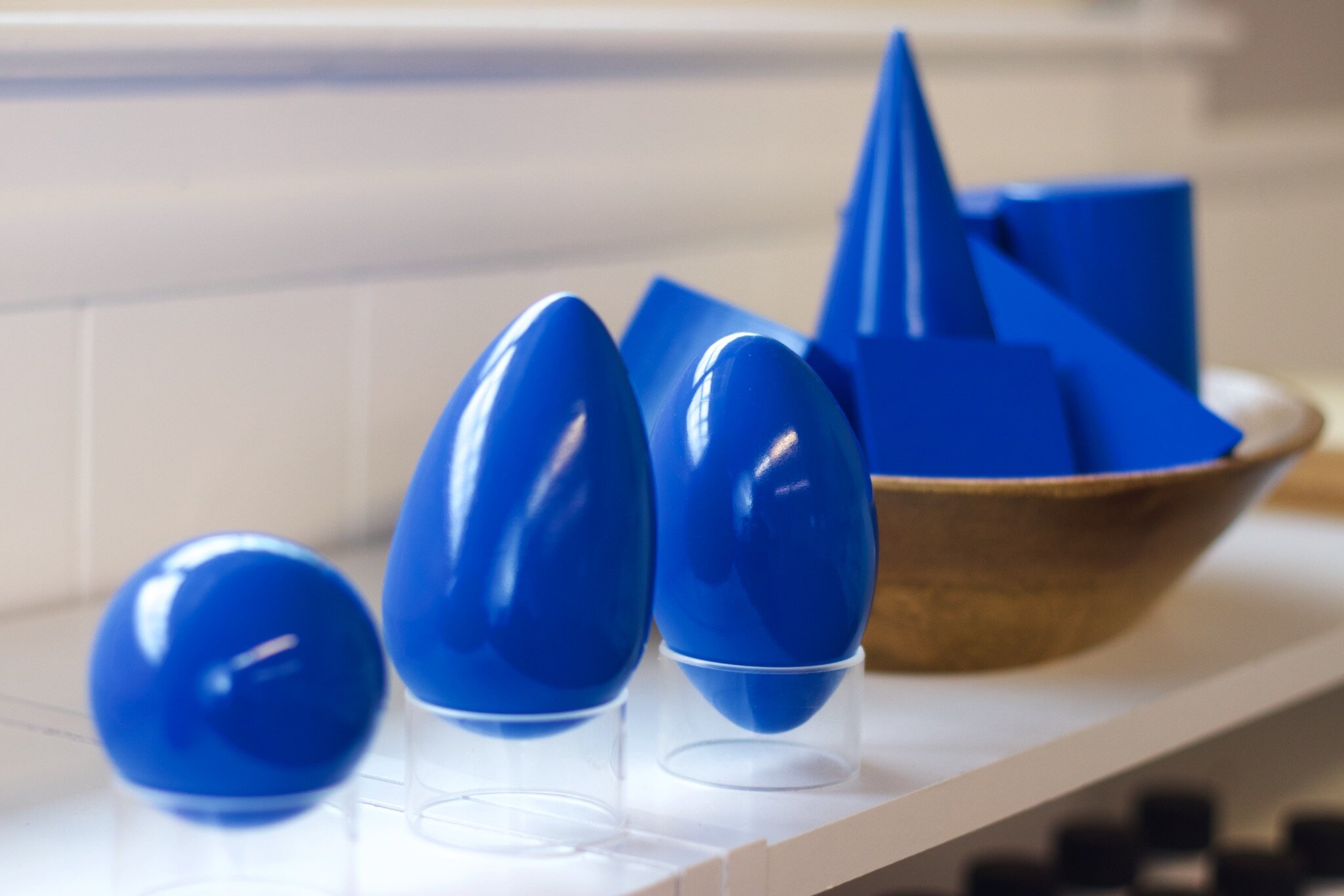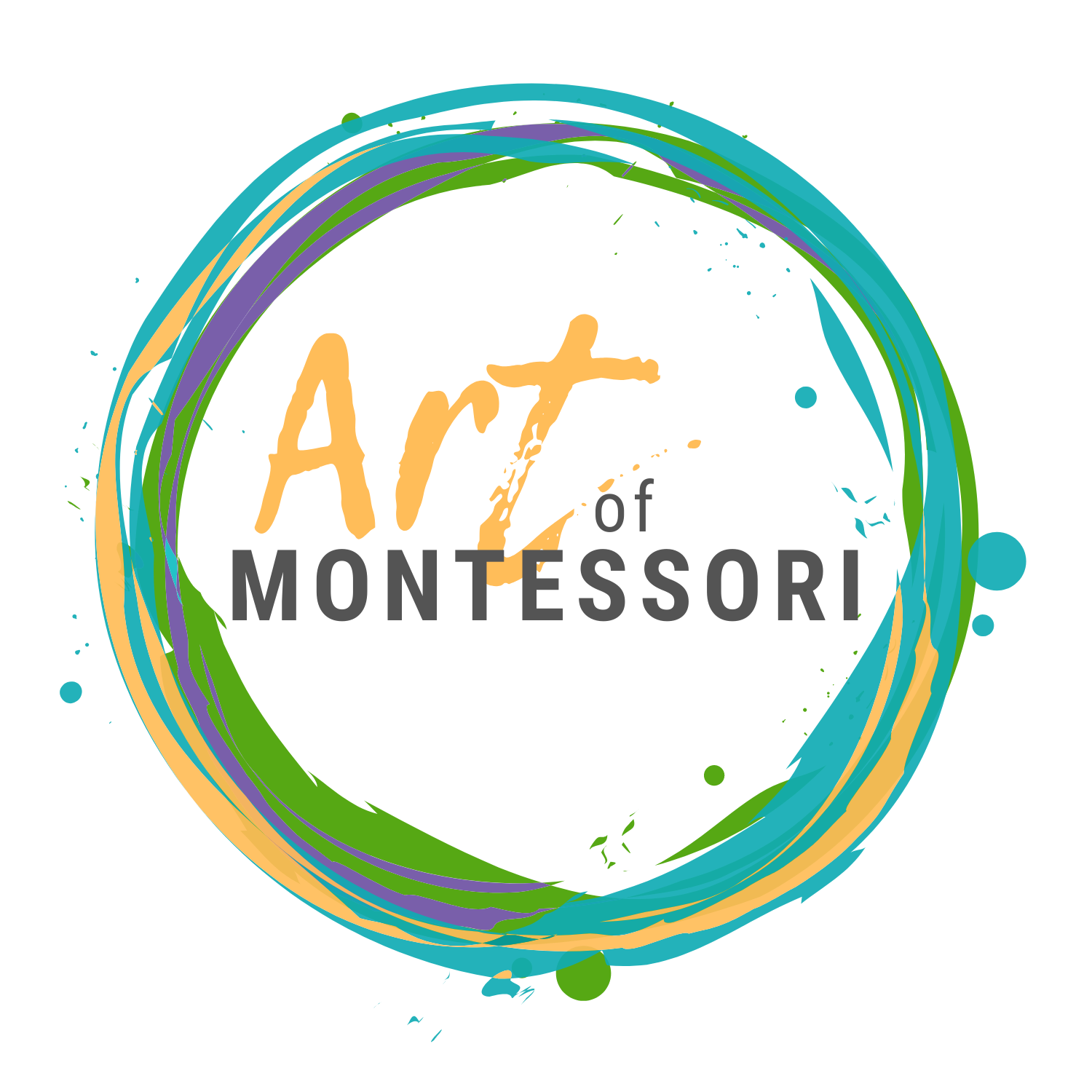
Practical Life
Within the Montessori environment, your child will first be introduced to the Practical Life area in the classroom. Materials can consist of the child using their whole hand to transfer, pour, use a spoon or even set a table. The purposes of these materials are to develop coordination, order, concentration and independence. These “real life” experiences are crucial in guiding your child to complete daily tasks on their own and contribute to the community of classmates.
Sensorial
Every human is born with seven senses, and the Montessori approach focuses on the refinement of these senses through the Sensorial materials. We all know that a child’s young life is a flurry of experiences with and through their senses. With little chance to isolate each sense in order to identify and understand why it is telling your child to do a specific behavior, your child can become anxious and fearful. Sensorial materials are designed to isolate and inform your child, showing them that each sense has its own significance and purpose to help them problem solve and find joy.
Math
Once children learn to count their basic single digit numerals, they are taught to recognize and quantify the use of numerals as a whole. In the Montessori environment, we help guide your children to develop numerical understanding in a logical way, from concrete to abstract and simple to complex. The concepts of Static (simple), Dynamic (exchanging, carrying, regrouping), Informal (gathering) and Formal (working off an equation) are also taught in the classroom. The math curriculum encompasses Linear Counting and the Decimal System.
Language
A child’s perception of language begins in the womb, marking the start of their literacy development. Maria Montessori states, “To follow a child in his language development is a study of the greatest interest, and all those who have devoted themselves to it agree that the use of words, of names-the first elements of language- falls at a fixed period in the child’s life, as if a precise time keeper superintending this part of his activity.” As is highlighted by Maria Montessori, the goal of the Montessori environment is to guide your child through their language journey. Your child will learn graphic matching, pronunciation of individual letters by phonetic sound, and then the motor skills necessary to write each letter of the alphabet. This foundation helps prepare your child to blend letters, words, and form sentences, enabling a smooth transition into the magical world of reading!
Cultural
Through the Cultural Subjects curriculum, your child will be taught one of the key focuses of the Montessori philosophy: a holistic understanding of the world and personal identity. Your children will learn about animals in Zoology, plants in Botany, the sky in Astronomy, basic body parts in Anatomy, how to care for themselves in Nutrition, along with lessons on the History and Geography of our world. Perspective of identity and the world around us will naturally develop in your child through the rich exposure and exploration of the Cultural curriculum.
Atelier
Art, music and design are key facets of education through which your child is given the opportunity for personal discovery. The founder of Reggio Emilia, Loris Malaguzzi, emphasizes the importance of atelier activities, explaining that “the wider the range of possibilities we offer children the more intense will be their motivations and the richer their experiences.” The Atelier (Art Studio) in our school gives your child the freedom to express their imagination. Through a variety of engineering materials such as ramps, pathways, and other loose parts, children learn to create collaborative projects. The studio also allows your child to explore art mediums through paint, sculpture, collage and handcrafts. Over the summer the Atelier goes outside, encouraging your child to participate in the dramatic arts and narratives through story, puppetry, and rhythm on our garden stage.
Peace Education
We live in a world where there is more loud noises and chaos than silence and stillness. The Montessori approach places emphasis on cultivating peace through the use of concepts such as the silence game, an activity that teaches your child to live in grace and courtesy toward other students. In Montessori, we also make use of outside as a natural extension of the classroom. This offers your child the opportunity for rich sensorial experiences that encourage renewal and exploration.







